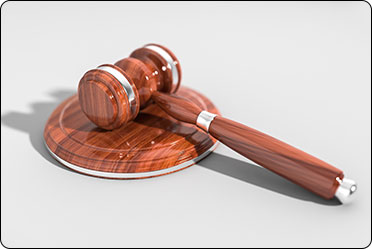
After any kind of arrest by law enforcement, including arrest on suspicion of DUI/DWI, the arresting officer must inform the arrested party of his or her rights as required by Miranda v. Arizona.
What is a Miranda Warning and what are Miranda Rights?
While there is no fixed language dictated by the Supreme Court, the arresting police officer(s) must advise the arrested party of 3 key facts:
1. the right to remain silent, under the Fifth and Fourteenth Amendments to the US Constitution
2. anything they say can and will be used against them in a court of law
3. the right to representation by an attorney, and if they cannot afford one, one will be provided to them
The full statement may typically sound like this:
“You have the right to remain silent. Anything you say can be used against you in a court of law. You have the right to have an attorney present now and during any future questioning. If you cannot afford an attorney, one will be appointed for you at no cost.”
What is the purpose of the Miranda Warning?
The purpose of the Miranda Warning is to ensure the rights of the arrested party are protected. Under the Fifth Amendment, people charged with a crime have a right to remain silent without providing verbal evidence that could incriminate them for the crime under which they are being charged. The purpose of the Miranda Warning is only relevant to post-arrest, and this is a VERY important distinction.
A police officer can – and has been trained to – ask as many questions of the civilian before the arrest, especially in the case of a DUI/DWI. Questions like “Where are you going?” and “How much have you been drinking?” are common during a roadside stop, and are later admissible in court – although the driver did not have to answer these questions. In fact, most drunk driving attorneys will advise that if you have been pulled over and you sense that you may be arrested, do not answer any of the officer’s pre-arrest questions, as this serves to help them establish probable cause to arrest you, and can also later be used as incriminating evidence against you in court. And what’s important to note is that because the arrest for drunk driving had not been made yet, the reading of the Miranda rights was not required by law.
Can a Police Officer Interrogate me Without the Presence of a Lawyer?
In New Jersey and Pennsylvania, you do not have the right to call a lawyer from the police station following an arrest for drunk driving. Some police departments may give you that opportunity. The police officer can still try to interrogate you – although they will normally do it in the form of casually asking you questions to try to reduce your defenses – but you still do not need to answer any of his or her questions without the presence of an attorney.
What happens if I cannot get in touch with or afford a Lawyer, and I refuse to answer any questions without one present?
Generally, nothing bad will happen if you refuse to answer questions. Rarely, a vindictive police officer may believe that you are being uncooperative and may tack on additional charges. In most cases, you will be released within a 12-hour period without having to be taken before a judge. However, in Philadelphia, you will be taken before a bail commissioner to be advised of the charges against you and for bail to be set. This process can take 24 hours or more.
What happens if the police asked me questions after I was arrested but hadn’t yet read me my Miranda Rights?
If your attorney can prove that you answered incriminating questions after your arrest, but that you were not first read your Miranda rights, this information can be suppressed and will not be able to be used against you in court.
Does this mean that my case will be dismissed automatically?
This does not mean that your case will be dismissed, as the initial arrest may still be valid, and any answers you provided prior to your arrest, such as if you had been drinking, can still be used in court. Also, if you performed any field sobriety tests or submitted to chemical tests back at the station, all of this physical evidence can still be used against you. The only information that can be suppressed is verbal answers that you gave to the officer after your arrest.
Leckerman Law focuses on safeguarding the
rights of individuals charged with DUI, DWI, DAI, and
other alcohol-related criminal offenses - Call Us Now For
NJ DWI (856) 429-2323 | For PA DUI (215) 496-9292